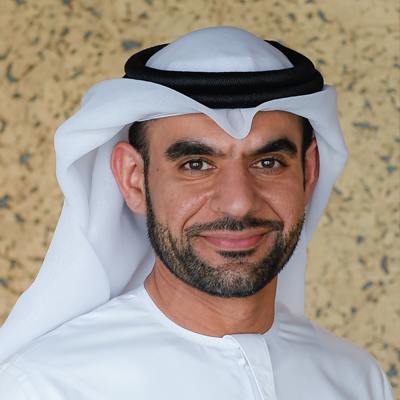

Assistant Director General, Digital Dubai and CEO at Dubai Data Establishment and Data Technology Lead at Dubai’s COVID-19 Command and Control Center
Angel Tesorero | Senior Reporter
Big data has made a huge difference in Dubai’s readiness and success in combating COVID-19. From the collection of real-time statistics on infections and vaccinations, analysing health conditions and socio-economic factors, the use of technology has proven its potential that goes well beyond the pandemic.
“The Government of Dubai has been investing in smart infrastructure and information technology systems for over the past two decades, which today are enabling us to develop analytical models to study the impact of various industry sectors on the city,” Younus Al Nasser, Assistant Director General, Digital Dubai and CEO at Dubai Data Establishment, told Gulf News.
“Dubai’s digital readiness has been continuously improving over the past 20 years and it has continued to evolve with the pandemic. With the effective use of data analytics, we were able to have targeted efforts to reduce COVID-19 cases,” added Al Nasser, who is also the Data Technology Lead at Dubai’s COVID-19 Command and Control Center.
Health dashboard
Al Nasser said Digital Dubai has collaborated with Dubai Health Authority (DHA) and Mohammed Bin Rashid University of Medicine and Health Sciences to develop an epidemiology equation known as SEIR (Susceptible Exposed Infected Resistant).
Al Nasser noted the system has allowed them to understand statistics transforming them into easily digested information by having an analytical visualisation of the data, with details on the current situation, in addition to predicting future scenarios to control the spread of the virus in the community. “This dashboard is very effective in processing and analysing the data as well as in providing predictions on COVID-19 developments,” he said.
The dashboard collates and monitors crucial information on the total number of infections by type – asymptomatic, mildly symptomatic, moderately symptomatic, and severely symptomatic – cumulative numbers of infections, recoveries, and critical cases across Dubai, he further explained.
Digitally breaking down a lot of information helped in understanding a variety of factors, including demographics displaying per capita infections, the geographical distribution of infections across Dubai, and cases in isolation facilities, along with logistical information such as the number of facilities and medical supplies available at each area, Al Nasser continued.
Public health monitoring
Another effective tool that helped Dubai in combating COVID-19 was a unified public health platform called Hasana for managing diseases and outbreaks. “Even before the pandemic, the Dubai Health Authority had built a unified health record system back in May 2018, which has helped us in managing and monitoring the disease. We modified this system for COVID-19, and we received all the necessary information from all public and private hospitals as well as clinics in real-time to reduce the spread of the virus,” Al Nasser said.
The Hasana platform is connected with all healthcare providers in Dubai, and this system enables users to review results to support decision making and can send electronic notifications on the availability of laboratory results and the latest impact of the disease across the city.
Revolutionised healthcare
Al Nasser said Big Data analytics has revolutionised healthcare in Dubai. As COVID-19 impacted economic and social systems around the world, Big Data analytics has helped in controlling the pandemic and understanding its characteristics and behaviour.
Big data analytics also played a crucial role in building the knowledge required in making decisions and taking precautionary measures as well as social and economic recovery.
“Data science and data analytics simplify the vast information we have on hand so we can build visualisations with such information and take subsequent actions,” noted Al Nasser. “The big investments made by Dubai in digital transformation has proven effective in overcoming the pandemic."
Further advancement
“Emerging technologies such as AI, machine learning, quantum computing, and advanced data science are now embedded in our systems, but they are all continuously studied and we are always evolving," Al Nasser said.
“As His Highness Sheikh Mohammed Bin Rashid Al Maktoum, Vice-President and Prime Minister of the UAE and Ruler of Dubai, famously said: ‘In the race for excellence, there is no finish line’. We will continue Dubai’s race towards excellence with further advancement of our existing systems to keep enhancing our city’s services,” said Al Nasser.
Younus Al Nasser, Assistant Director General, Digital Dubai and CEO at Dubai Data Establishment and Data Technology Lead at Dubai’s COVID-19 Command and Control Center